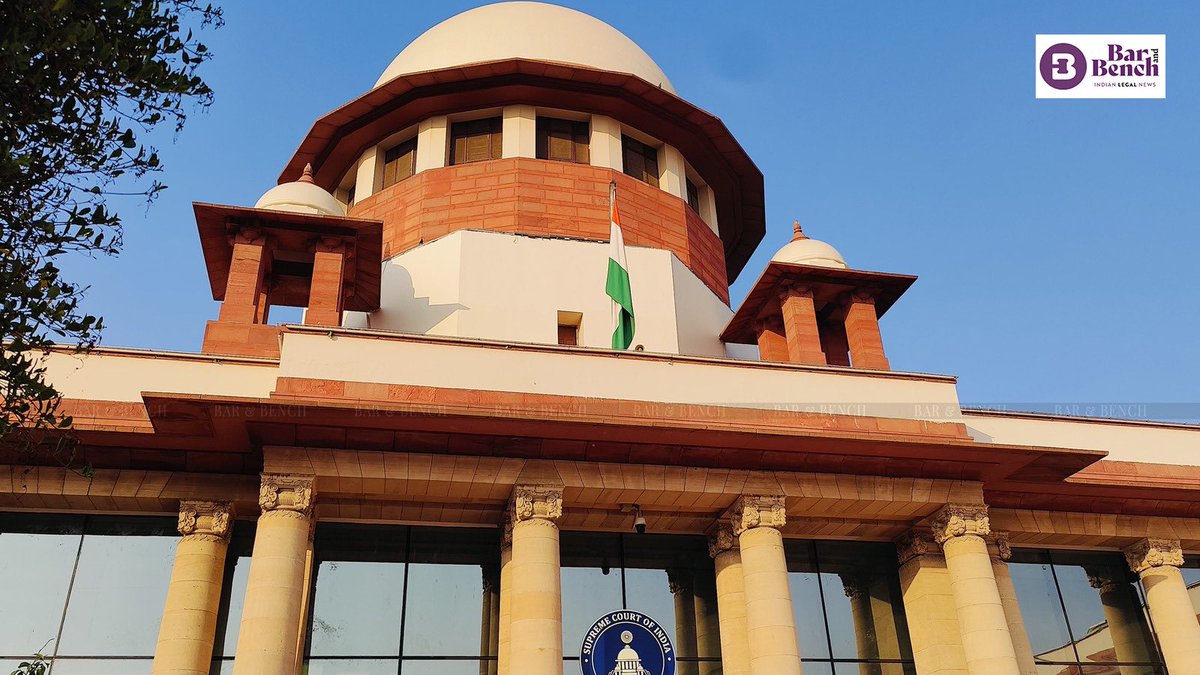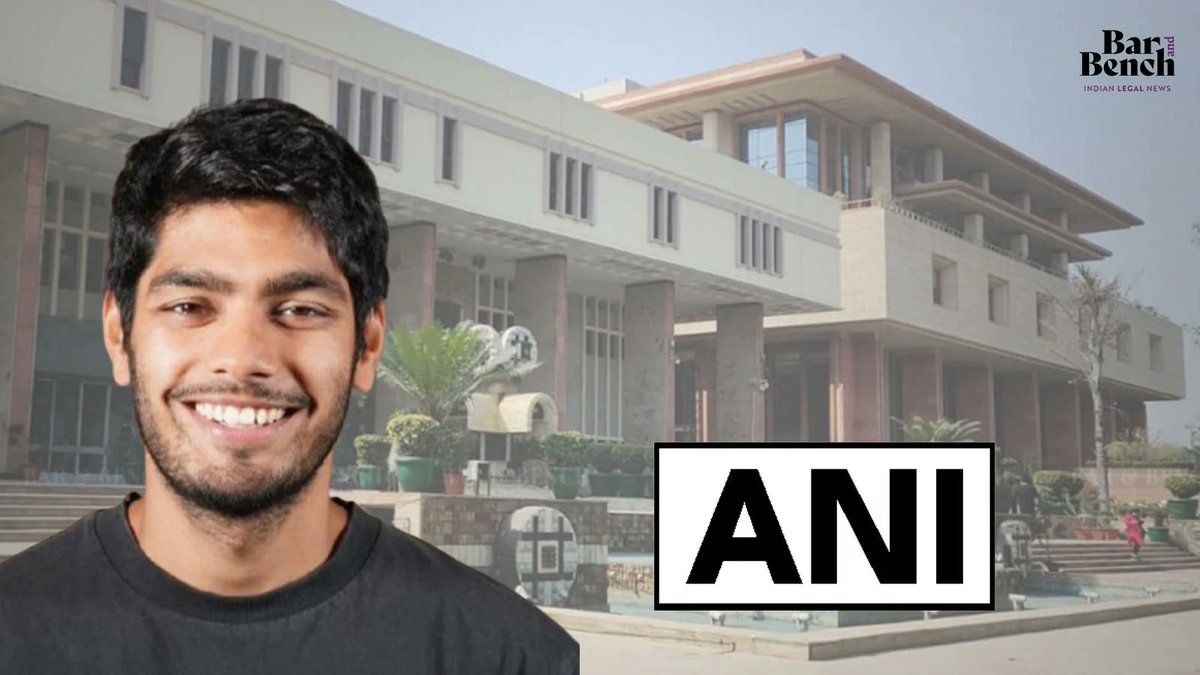Justice Nath: I am dumbfounded whether or not to deliver this memorial lecture, because after hearing all the interesting anecdotes and episodes and about the life of Mr. Sen, of which I have neither been associated, acquainted, or known, like Mr. Bagchi is from Calcutta, Dr. Singhvi remembers back to his father's time with Mr. Sen, Mr. Jayanta Mitra also has so many. If they could have continued, I would have enjoyed more. But since I have been assigned this job of delivering the lecture, I think now the boring part starts. All of you will have to suffer me and listen to this lecture, which is a scripted one…. I don't have anecdotes to narrate. If I could be excused, I would be very happy and request all the panelists to continue with some more. And I would say that my lecture is delivered….Reasons to follow and we can go ahead.
Justice Nath: People often call AK Sen the inevitable law minister. By that, they mean he was the person you naturally turned to when the country needed someone sensible to steer legal reform, someone who could talk to courts, to parliament, to the government, and to citizens without raising the temperature. He combined a lawyer's eye for detail with a public servant's instinct to explain and include. His promise showed early. At the age of 26, he authored a book on commercial law. It was endorsed by his senior, Sri Sudhiranjan Das, who would later become Chief Justice of India.
Justice Nath: That endorsement and the reception the book received tell us something important. Even at that young age, his learning was not just wide, it was useful. He cared about law that worked in practice. That same spirit guided one important legal reform of the post-independence period, the Advocates Act 1961, piloted in parliament by Ashok Kumar Sen, which closed a colonial chapter and opened a modern one. It swept away the old ranks of barristers, leaders, and vakils and created a single class of advocates. It established state bar councils and the Bar Council of India, set common standards of training and ethics, and gave lawyers a national right to practice.
Justice Nath: In plain words, it made the profession more open, more mobile, and more merit-based. Talent, not title, would matter. That change did not just tidy up levels. It changed how young people could enter and grow in the law. It helped democratize opportunity. Mr. Sen's work was not confined to professional regulation. He believed in the larger task of building an equitable society through legal reform and through a culture of rights.
Justice Nath: In the challenging years of the 1970s and 1980s, when the country faced political strain and tough debates about civil liberties, he worked to keep the rule of law steady. He focused on strengthening institutions, improving access to justice, and protecting fundamental freedoms.
Justice Nath: He spoke for the independence and integrity of the judiciary and backed reforms that helped courts do their work without fear or favor. He supported measures that defended the rights of those at the margins, such as tribal communities, minorities, women, children, and other vulnerable groups. He invested in legal education and in legal aid because he believed the law serves people best when people can actually reach it. These were not abstract aims. They were practical steps that pushed the promise of the Constitution closer to everyday life.
Justice Nath: we sometimes speak of public life as a series of battles. Mr. Sen showed another way, practice patience, clarity, and quiet persistence. Those qualities are not dramatic, but they are durable. They create trust, and trust is the true currency of law. During his long years in office and in Parliament, Mr. Sain kept returning to the same principle, make the text clear, keep the tone civil, build agreement where you can, hold firm where you must. He did not treat democracy as a background fact. He earned the support of voters, often in tough contest, and he returned that support by working seriously in office. That balance, public mandate on the one hand, careful legal work on the other is rare. It gave him a special kind of legitimacy. He spoke for the citizens because they elected him. He spoke for the legal system because he knew it from within. That is why so many across the political spectrum were comfortable with him at the helm of legal affairs. He belonged to everyone, not to a camp.
Justice Nath: It is worth saying something simple here. Greatness in public life is not measured by tenure alone. It is measured by a certain consistency of purpose. Length of service counts, but what counts more is the direction of that service. The thread that runs through many years and many roles. In Mr. Sen’s case, the thread is easy to see. Make the law clearer, make the system calmer, and bring people together around practical answers.
Justice Nath: There is another thing to be said about people like him. Some of us play one role at a time, and each role cancels the others. He was different. The teacher in him never left the lawyer. The lawyer never left the minister. The minister did not stop listening to Parliament. The parliamentarian did not stop speaking to citizens. In simple terms, he kept his roles connected. That is what gives a life its authority.
Justice Nath: We may disagree, as free people will, about this or that policy. But when we sense integrity, when what a person knows, what he says, and what he does line up, we give that person a respect that lasts beyond the day-to-day storms of politics. This connected way of working shaped how he handled the craft of law itself. At the bar, his reputation rested on simple habits. Know the facts well, be fair to the other side, and make the judges work easier, not harder. He cut through confusion and found the point that mattered. He did not treat the courtroom as a stage. He treated it as a place where problems must be solved. As law minister, he was a translator. He could take a technical idea from lawyers and explain it to lawmakers, and then take the concerns of lawmakers and make them workable for officials and for the public.
Justice Nath: He did that work again and again, especially when the issues were sensitive and the atmosphere was tense. He also understood that law is a chain, not a single link. Justice does not begin at the appellate court. It begins with the first complaint, the first conversation at a police station, the first hearing before a magistrate. It includes the way we draft government orders and contracts, the way we train our police and prosecutors, the way our tribal courts are run, and the way legal aid reaches people who cannot pay. If any link breaks, the citizens feel lost.
Justice Nath: Mr. Sen's approach strengthened the whole chain. We should view his record in context. These were decades when India's laws had to keep up with new social demands, new economic choices, and new constitutional questions. Many of today's issues, such as data and dignity, speech and responsibility on digital platforms, trade and fairness in a global economy, climate and development were only beginning to take shape then.
Justice Nath: If we want good answers, we must keep the basics in view. Speak plainly, draft carefully, consult widely, give reasons, protect procedure, respect the limits of our roles while working closely with other institutions. These are simple ideas, but they are the backbone of a stable legal order.
Justice Nath: All of this leads naturally to a subject that was dear to him. The habit of reading. As I near the end of my lecture, a single image seems to hold Mr. Sen's spirit best. The library. In the legal profession, reading is often discussed in utilitarian terms. Read to win the case, read to master the brief, read to prepare the speech. Ashok Kumar Sen's example encourages a larger view.
Justice Nath: Reading is a public act. When a lawyer reads well, a judge reasons better. When a judge reasons better, a citizen lives better. When a lawmaker reads widely, history, philosophy, economics, literature, then laws become wiser because they are rooted in a more generous understanding of human possibility. Here a line from Rabindranath Tagore helps us. “Don't limit a child to your own learning, for she was born in another time.”
Justice Nath: That thought speaks to a dynamic country. Every generation will test our institutions with its own questions about technology and privacy, about speech and equality, about faith and identity, about prosperity and the planet. If we limit the answers to yesterday's book, we will limit the country's tomorrow. The solution is not to abandon tradition, it is to deepen it.
Justice Nath: The deeper our roots in learning, the wider our branches in reform. Bengal's literary and intellectual tradition, of which Mr. Sen was an inheritor, understands this. It teaches us that reading keeps us humble because it reveals how much there is still to understand. It teaches us to argue without hatred and to revise without humiliation.
Justice Nath: A library is not a storehouse of the past. It is a workshop for the future. It keeps the machinery of justice and governance running. Many of us grew up in homes where a single shelf of books carried great weight. Mr. Sen built a much larger collection, full of rare volumes and careful notes. But the spirit is the same.
Justice Nath: A library, large or small, says that we will not guess when we can learn, and we will not shout when we can read. It says we will take the time to get things right. In a world that what rewards speed, a library teaches patience. In a world full of noise, it teaches attention. If we keep that spirit alive, in our law schools, our chambers, our courts, and yes, in our homes, we will honor his memory in the best possible way.
Justice Nath: Allow me to speak for a moment to the youngest people in this hall, the law students and new practitioners. The law can be demanding. It will keep you up at night. It will test your patience. And it will often test your courage. Do the simple things well. Read the papers carefully. Be on time. Treat everyone in the courtroom with respect. And keep your language straight. When you lose, learn why. When you win, thank the people who helped you. Find mentors who correct you. These small habits, repeated over years, become character. And character is what persuades courts and clients to trust you with difficult work.
Justice Nath: For judges too, there is a lesson in Mr. Sen's example. He dealt with disagreement without raising his voice. He was willing to hear every concern. But he did not let debate become delay. He believed that clarity is a form of respect to the house, to the courts, and to the public. We on the bench should hold ourselves to the same measure. Clear reasons, a steady tone, and decisions that ordinary people can read and follow. The Constitution speaks to everyone. Our judgments should do the same. Leadership in law is often judged by what is done on the biggest stage. But the law is built day by day on small, careful acts. There is dignity in small things. Filing a brief punctually. Treating a court officer with respect. Giving credit to a junior. Citing a president accurately. Acknowledging an error promptly. These are the habits that make you trustworthy.
Justice Nath: In time, trust will give you influence, and influence will invite responsibility. When that day comes, remember the tradition we honor tonight. Use your influence to build institutions, not just reputations. Use your skill to sharpen justice, not just arguments. Use your learning to guide the next generation, not just to impress your own. If we keep these habits alive, we will also keep alive the wider spirit of the law. It's humanity.
Justice Nath: Law is a set of rules, yes, but it is also a way of treating people. It is a promise that power will answer to reason, and that reason will be open to evidence. It is a promise that even when we act with speed, we will not forget fairness, and even when we act with firmness, we will not forget compassion.
Justice Nath: Mr. Sen's contribution across many years was to make that promise feel real in the ordinary business of government and parliament. As we look ahead, we will face new questions that touch every part of the legal system. Data protection and dignity, responsible speech in the digital sphere, markets that reward enterprise without losing fairness, environmental choices that balance growth with care for the planet, and new technologies, especially artificial intelligence, that will change how we work and live.
Justice Nath: None of these choices will be easy. But if we hold on to our steady habits and remember that the law exists to serve people, the path will be clearer. Before I close, let me thank our panel once again for setting the tone this evening. Your presence reminds us that the work of law is shared work. Bar, bench, parliament, universities, and the wider public each have a part. The best tributes to a person like Ashok Kumar Sen are not statutes or special sessions. They are daily choices to prepare a little better, to argue a little more fairly, to write a little more clearly, and to treat one another with dignity even when we disagree.
Justice Nath: Ashok Kumar Sen did not set out to be inevitable. He became so because people could rely on him. May we aim for the same standard in our own spheres. Let us keep our minds open, our words measured, and our actions steady. Let us read widely, teach generously, and guide those who follow us. If we can do that, then the spirit of this lecture will not end with tonight. It will continue in our files tomorrow morning, in our classrooms, in our courtrooms, and in the quiet places where we open a book to learn something new. Thank you very much.
• • •
Missing some Tweet in this thread? You can try to
force a refresh













